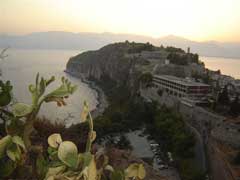 Drought Worsens in the Sahel Region of Africa – Millions of People at Risk
Drought Worsens in the Sahel Region of Africa – Millions of People at Risk
More than 17 million people are facing possible starvation in West Africa’s Sahel region, the zone skirting the southern portion of the Sahara Desert. The crisis is due to a combination of drought caused by poor rainfall in 2011, too little food, high grain prices, environmental damage and large numbers of internal refugees.
“Between 1998 and 2010, our harvests were flourishing and the livestock giving plenty of milk,” said Fatimata Diallo, head of a local farmer’s cooperative in the Mauritanian village of Toulel Dierri. “But since 2011, we are living very precariously.”
Mauritania, Niger, Mali, Chad and Burkina Faso are facing the worst of the crisis. The countries are experiencing stressed levels of food insecurity and many of their local coping mechanisms have been exhausted. The USAID Famine Early Warning System Network warns that between July and September 2012, the food security crisis will peak.
Emergency plans have already been put into place by the governments of Mauritania, Mali and Niger and the United Nations has launched its Consolidated Appeals Process, a tool developed by aid organizations to raise funds for humanitarian action. Other international efforts include more than €120 million allocated to emergency assistance from the European Union, global appeal campaigns from various Non-Governmental Organizations and the recent formation of the Global Alliance for Action for Drought Resilience led by the Intergovernmental Authority on Development (IGAD).
The World Bank Group is also adapting its projects to make the best use of existing assistance in the Sahel. Poor households in the worst-affected countries have immediate food needs and require additional humanitarian assistance.
“Droughts tend to have the worst affect on the poorest people in any given region; those with the least ability to adapt to changing climatic conditions,” said Jamal Saghir, director of the World Bank’s Africa Region Sustainable Development Department. “The drought in the Sahel is having an enormous impact on the poor and those displaced by conflict.”
Recent conflicts in Mali and Niger have forced over 300,000 people from their homes with many escaping to refugee camps in neighboring countries. The displacement has worsened an already difficult situation and has put many thousands more people at risk of malnutrition. Traditional animal grazing routes have been cut off and many local markets closed due to the conflict, which could have longer reaching consequences for regional food security.
In addition, the latest edition of the World Bank’s Food Price Watch warns that delayed harvests in the Sahel due to climatic conditions are contributing to flat or increasing food prices. Even if families were able to afford to purchase their own food rather than grow it, limited access to markets would impact accessibility, according to the report.
“With the rise in basic food prices, the precarious situation is gaining ground,” said another member of the Toulel Dierri food cooperative. “This year, we have even sent our girls into town to search for domestic work so they can at least have two meals a day.”
In just a short amount of time, according to the cooperative members, the community has gone from larger-scale agriculture to household subsistence agriculture.
What the World Bank is Doing
The World Bank is preparing to address short-term food security needs and long-term drought resilience in the Sahel region by conducting an extensive review of its existing programs in order to determine which resources from existing projects can be allocated to the crisis situation. This will help ensure that any needed resources can be allocated quickly and existing projects, especially those dealing with social safety nets, can be better tailored for longer-term drought resilience.
“Building resilience to drought is a key objective of our work,” said Doekle Wielinga, Head of the Africa Region Disaster Risk Management Team. “We are doing this by strengthening social safety nets which help households to bolster resources and build capacity to deal with climatic shocks. We are also financing agricultural development projects for improved and sustainable land management.”
Specifically, in Niger, the Bank is launching a community action project for climate resilience plus a large-scale social safety net project aimed at increasing access by poor and food insecure people to cash transfer and cash-for-work programs.
In Mauritania, a development program for irrigated agriculture is underway to increase food security by boosting sustainable irrigation and diversifying crops and agriculture for local farmers.
| Contact information | n/a |
|---|---|
| News type | Inbrief |
| File link | n/a |
| Source of information | World Bank |
| Keyword(s) | drought |
| Subject(s) | HYDRAULICS - HYDROLOGY , METHTODOLOGY - STATISTICS - DECISION AID , RISKS AND CLIMATOLOGY , WATER DEMAND |
| Relation | http://www.semide.net/topics/WaterScarcity |
| Geographical coverage | n/a |
| News date | 07/06/2012 |
| Working language(s) | ENGLISH |
 you are not logged in
you are not logged in





